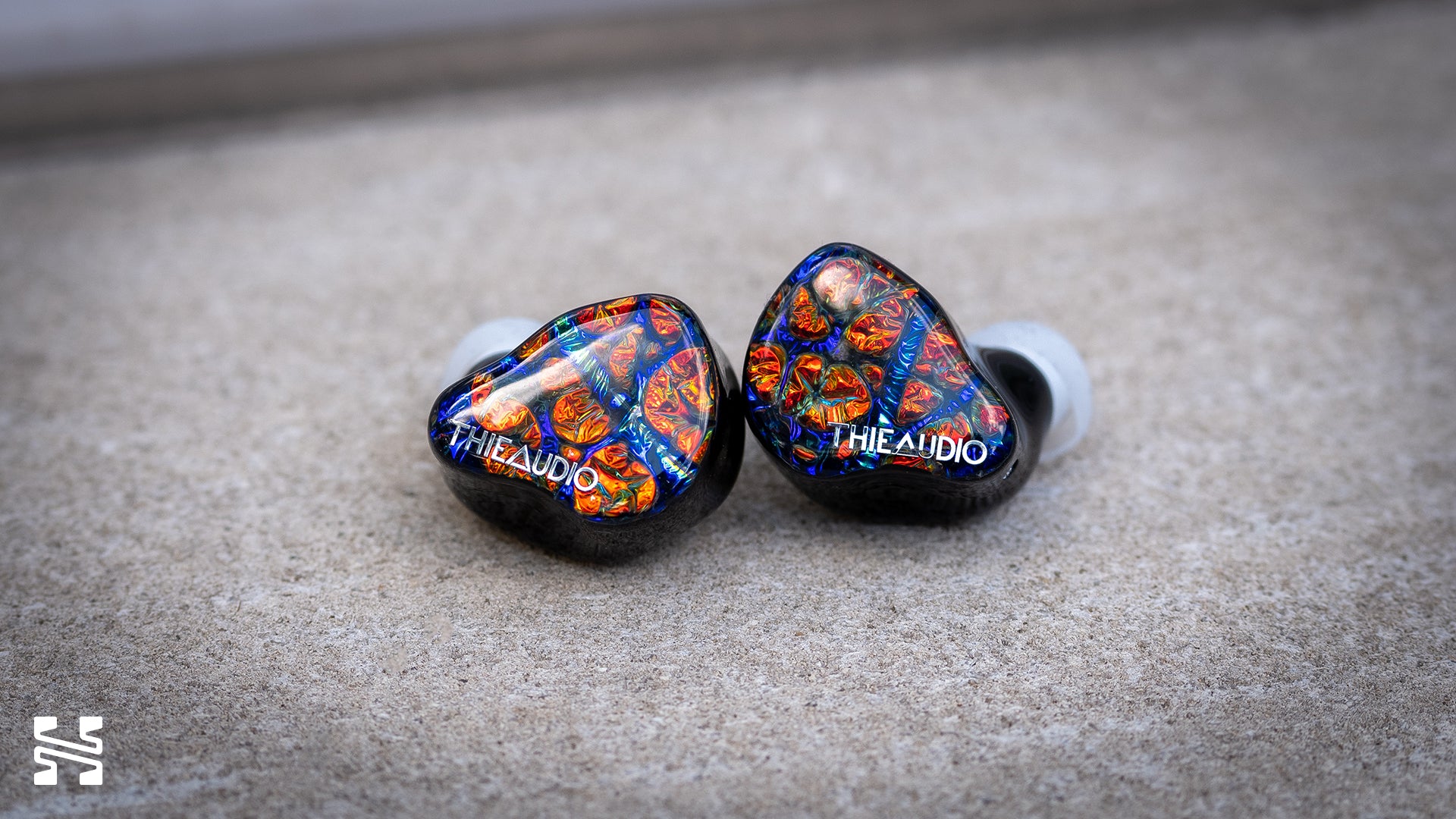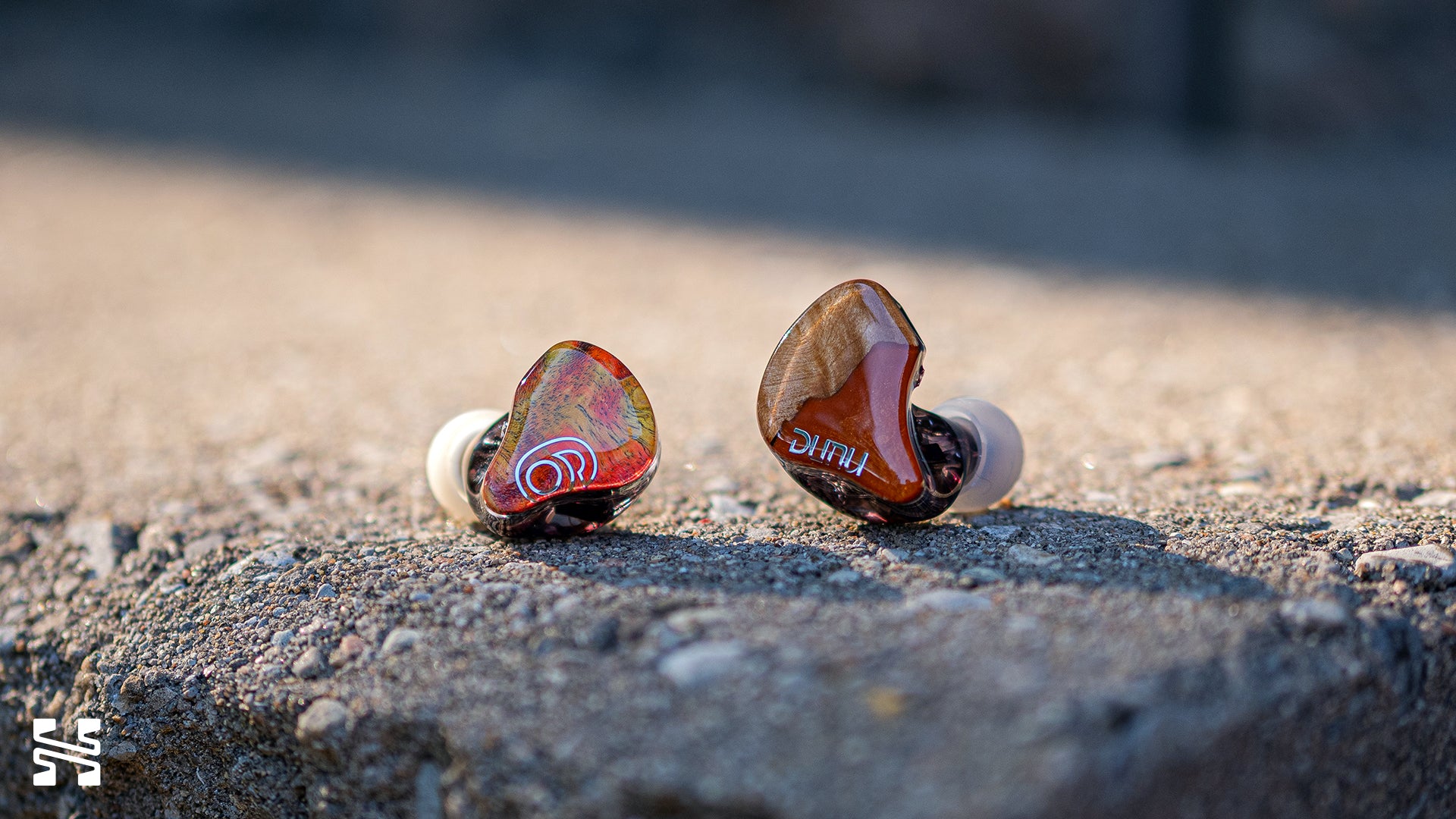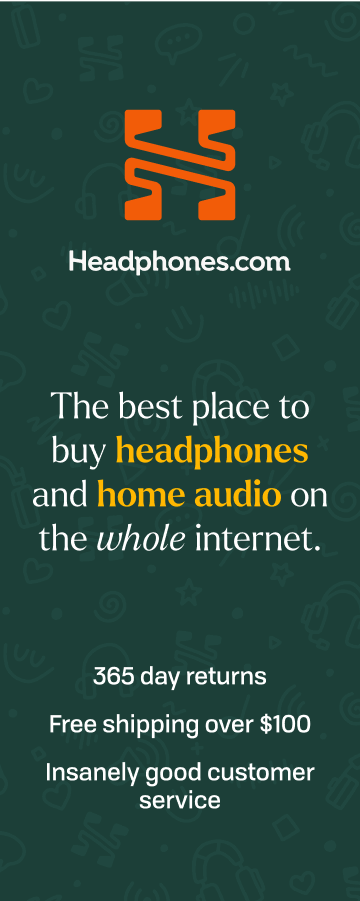A Practical Buyer’s Guide to Shopping for Headphones (and Other Audio Gear) - Navigating the Chinese Market [Updated 2025]
Buying audio can be surprisingly complicated. Doubly so when it comes to the Chinese market. Fc-Construct gives out some practical advice on how to navigate the scene.
![A Practical Buyer’s Guide to Shopping for Headphones (and Other Audio Gear) - Navigating the Chinese Market [Updated 2025]](http://headphones.com/cdn/shop/articles/Blessing_3_1_0913d3ad-666b-4176-b071-bb48782c4611.jpg?v=1745027626&width=1100)
Introduction
There are countless buyer’s guides to headphones and other audio gear out there. Some focus on recommending specific products. Others take a 30,000-foot view and discuss the common pitfalls when making a purchase decision. But as far as I can tell, there isn’t a guide that clarifies the actual shopping experience itself. This is it.
You’re probably wondering why someone might need a guide to clicking “Buy Now” on a website. Well, you might be surprised with just how much there is to keep in mind. For example, have you ever considered:
- The difference between a retailer, a brand, and a manufacturer?
- How to navigate the Chinese audio market?
- The hidden costs of customs and delivery fees?
- Do you have to worry about fakes?
- When do the best sales generally occur?
- That not all customer service and return policies are made equal?
- When does buying used make more sense? And when does it not?
In this guide, I’ll be going over the topics that relate more to the Chinese audio market as it’s very popular but complex for the uninitiated. So strap in and get ready to step outside of Amazon.
An older version of this guide focusing on the Chinese IEM market can be found here.
If you're newer to this hobby, here's a video from Resolve with important advice when it comes to buying headphones.
Retailer, Brand, or Manufacturer?
So it’s your first time buying some IEMs and you decide you want to get the Truthear Hexa because it’s one of most recommended budget IEMs out there. Great! You go to Amazon and look up the Truthear Hexa and you find two listings: the Truthear Hexa and the Fanmusic Truthear Hexa. What’s the difference?

The important distinction here is that Truthear is the brand (and also the manufacturer) of the Hexa. Fanmusic is a retailer, a storefront on Amazon. Specifically, Fanmusic is the Amazon version of Shenzhen Audio (which I’ll get to later). The key is that oftentimes, Chinese retailers will put their store name right next to the products they are selling to try and gain name recognition. It doesn’t matter which Hexa you get, they will be the same.
Here’s the confusing twist: sometimes, retailers themselves can be manufacturers and have their brands or exclusive collab products. For example, Linsoul has their Thieaudio and Kiwi Ears branded products. Or HiFiGo who doesn’t have a house brand, but has collaboration products like the DUNU x GizAudio DaVinci. Practically speaking, this doesn’t matter much other than limit which retailers you can buy specific products from.
The Retailers
At this point, you might be thinking Linsoul? HiFiGo? Shenzhen Audio? Why can’t I just get it from Amazon or Temu or Aliexpress? Believe it or not, the nicheness of the audio scene means that a lot of great gear, particularly for IEMs, can’t be found there. Odds are, as you get deeper into this hobby, Amazon won’t have what you’re looking for. You’re going to have to go through different retailers for these products. To make it easy for you, I’ve put together a simple tier list of the types of shops you’re likely to come across.
Note: The following tier list is NOT meant to promote or disparage any specific stores. It’s also not meant to be a comprehensive list by any means, just the ones that you’re most likely to come across.

Thieaudio Monarch MKIII is an IEM you likely won’t find on Amazon
Tier 1: Established Local Audio Retailers
This might be obvious, but the first place you should check for a product is a local shop that’s been around for a while. In a world where websites are the first place people look to buy things nowadays, you might be surprised to find what your local music shop or Hi-Fi store might carry. Chinese brands have tried so hard to aggressively expand their business that I’ve even seen stereo dealers carrying IEMs these days.
Of course, not everyone is so lucky. That’s where an established online retailer or even the online version of a brick-and-mortar comes in. Like the Hi-Fi shops of old, these specialized audio shops will carry a limited but curated selection of products. They’ll have more tailored customer service geared towards the hobby such as advice on how to configure a new set-up or help you handle any warranty requests. Because they’ll have warehouses in North America, shipping times will be significantly faster than coming from China (or internationally). And you won’t have to worry about shipping products back to their home country if you do end up needing something fixed.
Do note that I said established for a reason. Watch out for those sneaky dropshippers!

I’ll take a moment here to acknowledge the fact that yes, this article is supported by Headphones.com, which is the biggest online retailer for this hobby. As you do more research into the different audio retailers, you’ll notice that many of them support reviewers in some form or fashion. It’s their way of making the hobby more accessible, and in turn, expand the customer base.
Headphones.com is a little unique in that they go to the extreme of having an independent reviewer team separate from the store that not only does reviews free of manufacturer/brand influence, but also publishes industry standard measurements and other educational resources. The idea here is that an educated hobby community makes better purchase decisions, thus making shopping more efficient for both customers and the store. This is what affords them the ability to offer a 365-return policy.
Tier 2: Shenzhen Audio, Linsoul, and HiFiGo
Now I’ll get into the “big three” ChiFi stores: Shenzhen Audio, Linsoul, and HiFiGo. I consider them the big three as they’re currently the most popular stores for people looking to really delve into the Chinese Market. Each of them has a large catalogue of Chinese brands and sell everything from random little accessories to high end luxury sources. Each of these stores will often run their own promotions and sales too, so keep an eye out during typical sale dates like Spring, Back to School, or Christmas.
The other thing that makes these the “big three” of Chinese stores is that they often carry exclusives or collab products of their own while competing against each other. For example, because Linsoul owns the Thieaudio brand, they don’t let Shenzhen Audio or HiFiGo carry them. This is despite the fact that Linsoul happily provides North American retailers like Headphones.com plenty of Thieaudio stock. So in other words, you’ll have to cross-shop between these stores as they may not fully overlap.

In terms of shipping, customer service, and returns, these three are around a ballpark of each other. Personally, I consider them to be about as good as Chinese shops go. While they aren’t Amazon, these stores have put tremendous effort into improving their logistics. I remember back when Linsoul and HiFiGo were just getting started as stores and waiting two weeks to a month with no tracking number for things to arrive, as is customary for small Chinese shops halfway across the globe. Now, they provide tracking numbers, improved their overseas inventory, and tightened up the shipping times. They even promote their warranty and return policies. They’ve also put a lot of work into their customer service over the years, though it still isn’t perfect.
So what’s the difference between a Tier 1 and Tier 2 shop? Simply put, the local nature of Tier 1 retailers means they tend to offer better shipping times, customer service, and warranty support. Tier 2 shops will have more product options and are reliable places to buy from, just be aware that there may be some “lost-in-translation” moments if you have a special case.
Tier 2.5: Direct from manufacturer or smaller but reputable shops
Alternatively, you can buy directly from the manufacturer. Sometimes, a Chinese brand like DUNU might have their own store online you can order from. The reason they aren’t as good as the stores in Tier 1 is because they might not have the same level of support and customer service given their smaller size.
In this tier would also be some of the smaller audio retailers. Penon Audio would be an old school example, having existed before Linsoul or HiFiGo. They’re a reputable vendor, just not to the scale and popularity that the “big three” have grown to. Or for something even more niche, Hong Kong-based shops like MTMT Audio or AccessoryJack carry brands like Acoustune that you can’t find anywhere else.

DUNU SA6 and SA6 MKII can be bought directly from the DUNU website.
More recently, an example would be The Hangout. It’s an audio shop opened by Crinacle, a community-turned-industry member, and sells a curated collection of products based on Crinacle’s recommendations. Truthfully, The Hangout could probably be in Tier 1, but given that it operates out of Singapore, you’re still better off finding something closer to home if possible.
Tier 3: AliExpress
Now we come to AliExpress. With how much the Chinese audio scene has become accessible thanks to the above shops, you might never need to visit Aliexpress. But if you’re totally unfamiliar with AliExpress, think of it like the eBay of China where countless individual stores can set up shop and list their products. It’s not as easy to navigate and can feel daunting at times, but you can find almost anything you need here when it comes to Chinese audio gear and accessories.

Before I really get into explaining it, there are a couple things to clarify.
- Yes, shopping on AliExpress is generally safe. Obviously, exercise due caution like not spending thousands of dollars at once and sticking with stores with high ratings and large order volumes. But most people I know haven't had too much trouble shopping on AliExpress.
- While competition from Temu has made things better, shipping can still take weeks and you might not get a tracking number (or a working one). With AliExpress, sometimes there’s an element of blind faith that your items will arrive. You just have to wait and one day it’ll show up on your doorstep. In my experience, almost everything does arrive within a month though.
- Customs and declaration fees. Given that you’re importing from China, you might be hit with customs. There’s no hard rule about this because it really depends on where you live, the courier used, the cost of the goods, etc. I haven’t actually had to pay too many of these myself but is one that you should be aware of in case you see any strange additional fees. After all, the hottest word of 2025 is tariff.
Now back to the point of AliExpress being like eBay. Many, many Chinese brands have an official store that can be found on AliExpress. MoonDrop has a store. DUNU has a store. KZ has a store. These are individual stores run by those manufacturers.
And for that matter, so do some of the other retailers I’ve mentioned. Not only do they have their own websites, they also have official stores on Aliexpress selling the exact same products their official website does.
Practically speaking, this doesn’t affect anything when it comes to buying. Just know that each store is run separately from another and some are more reputable than others. But in general, I’ve rarely ever had anything go wrong. Those direct-from-manufacturers stores in Tier 2.5 are pretty much the same as their AliExpress version, but with a dedicated website.

Tier 4: Alibaba
All the shops I’ve listed above will have everything you could imagine in this hobby. But if for whatever reason there’s something you truly cannot find there, you can try Alibaba. For those unaware, Alibaba actually owns AliExpress. Where AliExpress is meant to be a direct-to-consumer store and has a much nicer interface especially for those in the West, Alibaba is meant more for business-to-business ecommerce. There’s pretty much everything under the sun on Alibaba.
Personally, I’ve never shopped there myself. It’s a lot more confusing to navigate their site and you’ll have to figure out the shipping yourself, often needing a forwarding service of some sort. The benefit of Alibaba is that you might be able to get some extremely rare or esoteric items that not even AliExpress has sold by individual audiophiles living in China looking to share their craftsmanship. You’re on your own for this one.
Tier 5: Temu and the Aliexpress-likes
Temu is self-explanatory, and the Aliexpress-likes are Chinese online retailers like BangGood or GearBest. Broadly speaking, they all function like Aliexpress and are legitimate. But frankly speaking, these retailers don’t sell anything worthwhile other than some small accessories or ultra budget brands. And that, you can get from Amazon. Seriously, there is practically no instance where you would need to shop here.

The FiiO FT1 is a headphone that you won't find on Temu.
The Hidden Costs
Something that rarely gets discussed when buying gear are the various hidden costs. I alluded to a few of them earlier - customs is the most obvious example. Less common is the cost of returns or repairs. Buying internationally might mean needing to pay the cost of shipping back to the country of origin. Sometimes, that can be more expensive than the product itself. To make matters more complicated, the customer service reps for these Chinese stores might not be too fluent in English, making the whole process even more challenging.
Sadly, I can’t give any guidelines on how much extra you could expect to pay. Every shop handles things differently. From unexpected custom fees to complete RMAs due to dead drivers, these are the potential hidden costs to keep in mind. And that doesn’t account for all the time spent troubleshooting.
Ultimately, it’s a balance between paying potentially a little more with a more trustworthy shop where you know your costs upfront and get better customer service down the line vs. scoring a good deal and hope that nothing goes wrong. Or if it does, that the fix will be easy. It’s up to you to decide your comfort level. My personal rule is that I’ll buy from Aliexpress if I can afford to fully lose that amount. Practically speaking, that means anything over $300 I’ll try to stick with something I can buy from a North American shop unless absolutely necessary.

Beware of Fakes?
The last topic I’d like to briefly touch on is about fakes. This is a very fair concern, but one that thankfully isn’t that big of a deal in this space. Fakes do absolutely exist, but they tend to only be for very specific and popular products such as the Sennheiser IE or Shure SE line-up. For the vast majority of other audio gear, I can’t recall a time when this was a problem. Especially if you stick with the Tier 1 - 2.5 shops that I’ve listed. I won’t say you’re 100% safe, but I’d be extremely shocked if you bought say a MoonDrop DUSK and got a fake. Remember the old adage: if a deal is too good to be true, it probably is.
But if you are concerned, that’s where it pays to shop from those Tier 1 stores. Not only will they receive genuine products directly from the manufacturer, it’s also in their interest to help you if you receive a fake or low quality product as it means there’s a problem with their partners. Being smaller and more local additionally means you’re likely to get quicker and more dedicated customer support.

Conclusion
It’s a shame that there can be so many things to watch for when you just want to buy something, but that’s the reality of the market we live in. Hopefully this guide was helpful in equipping you with key pieces of information for when you do decide to go for your first purchase or next upgrade. Happy listening!
